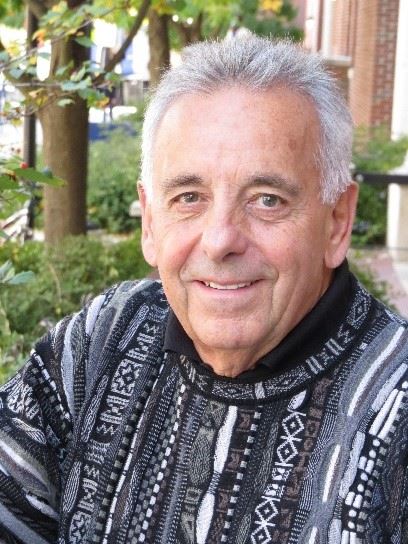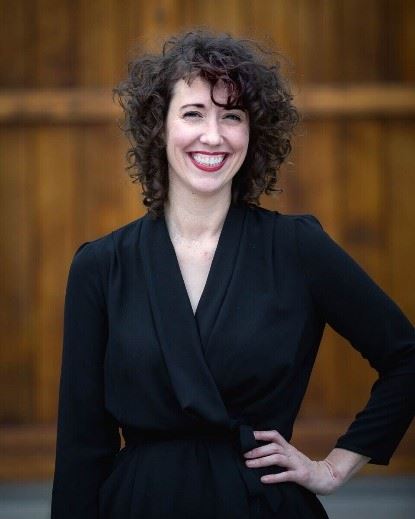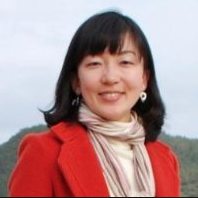- Home
- 2018 IMBES Election Candidates
2018 IMBES Elections Candidates
VOTE NOW (Login required)
President Elect Candidates (3)
| Bert De Smedt (University of Leuven, Belgium)Bert De Smedt is an Associate Professor in Mind, Brain and Education at Faculty of Psychology and Educational Sciences of the University of Leuven (Belgium). His interdisciplinary research program aims to understand why some children are good at mathematics and others experience (life-long) difficulties in this basic academic competency. He was the founder of the Special Interest Group on Neuroscience and Education of the European Association for Research on Learning and Instruction, which he coordinated for 6 years. He has been very actively involved in the IMBES board of directors over the last five years, served as a secretary of IMBES from 2013 to 2017 and was elected as vice-president in 2017. He is currently an associate editor of the IMBES journal Mind Brain Education. His key aims for IMBES are: to consolidate IMBES as an international society by fostering stronger links with Mind, Brain and Education researchers/practitioners in Europe; to strengthen the position of students and early career researchers/practitioners in the society; and to continue to establish the international conference and journal as outlets for cutting-edge research in our field and as fora for evidence-based practices and practice-based evidence. |
| Bruce D. McCandliss (Stanford University, US)I would be honored to serve as IMBES President-Elect next year. I’ve been actively involved in IMBES since the beginning, and I have been very encouraged to see how it continues to grow in depth and impact while staying true to its mission of enabling quality interactions between research and practice across all three equally important components of Mind, Brain, and Education. I also believe that the intersection of Mind, Brain, and Education is significantly enriched by IMBES studies that include diversity across language, socio-economic, and cross-cultural dimensions. I also look forward to helping IMBES play a more global role in coordinating the rising tide of MBE research across the globe. As developmental cognitive neuroscience enters the era of population level longitudinal studies of brain development with tens of thousands of children across the world, I look forward to seeing how our society will enrich such efforts by focusing in the links across Mind, Brain, and Education, and leveraging these links to further both our basic knowledge and improve students’ developing minds and brains. There is no society quite like this, and none so well-prepared to help better understand how learner differences, educational environments, pedagogical principles, and theoretically driven curricula help shape the developing mind and brain. I believe IMBES will play a key central role in developing a new generation of scholars who can lead research and practice innovations. The future of IMBES rests in our students and emerging scholars. I would like to see IMBES leadership proactively address the career pathway challenges and opportunities that students in this interdisciplinary field will face as they prepare for leadership positions at the nexus of scientific inquiry, understanding educational dynamics, and bringing insights to application at scale. |
| Frederick Morrison (University of Michigan, US)I would be honored to serve as IMBES president. I have been deeply committed to interdisciplinary research in my career, most recently embarking on a series of projects examining the causal effects of schooling (using Regression Discontinuity Designs) on brain (EEG) and behavioral measures of executive function. I am deeply persuaded that educational neuroscience can lead the way in elucidating the complex, multi-level, interactive nature of human development. I will strive to promote and enhance collaboration and integration of biological, psychological and contextual perspectives on educational development. In addition, it will be critical for IMBES to continue its efforts to learn from and communicate with educational practitioners, to foster both deeper understanding of academic growth and search for ways to improve children's lives. |
Board Member Candidates (3)
| Tim Brown (University of California San Diego, US)I would like to become a Board Member of IMBES because of my long-standing interest in the application of developmental cognitive neuroscience to educational theory, practice, and policy. I’d like to contribute to the Society’s efforts in public awareness and outreach, which is another strong interest. I’ve been involved in attempts to apply neuroscientific knowledge in the classroom since 1991, when I worked with pediatricians at the University of North Carolina School of Medicine on a project called Schools Attuned to Neurodevelopmental Variation, which had eight school sites across the US. One of the biggest challenges then was setting up lasting, truly collaborative relationships among teachers, school administrators, scientists, and clinicians in ongoing research. This remains a challenge in my current projects collecting behavioral and brain data in schools, despite similarly high interest among educators in the brain and cognition and much improved awareness, data collection technologies, and access to information. As a child on free lunch and the only of four children in my family to attend college, I’m dedicated in a personal way to promoting higher education and particularly awareness and access among underprivileged children. As one recent example, in 2009 I founded Interaxon at UCSD, a student-run outreach organization that visits K-12 schools in the greater San Diego area that are underrepresented in college attendance to promote children’s excitement about brain science and about higher education in general. With IMBES, I’d like to explore options for similar outreach and public awareness activities and opportunities, which might take several forms. And I’d be happy to work with and promote the Society in any other areas where it might need help. |
| Jennie Grammer (University of California Los Angeles, US)When I first attended an IMBES meeting in 2016, I felt like I had found an intellectual home. I would be honored to serve on the board of this growing organization. As a developmental psychologist on faculty in a school of education, I investigate brain and behavioral changes in children’s cognitive skills in early elementary school and examine aspects of the classroom setting that promote this development. The ultimate goal of this work is to aid teachers by providing practical, accessible methods to improve the academic outcomes of their students. Conducting work in the field of mind, brain, and education that ranges from basic to applied presents many exciting opportunities as well as challenges. IMBES is a unique and important community for fostering conversations about work in this growing field, connecting with other researchers and practitioners, and for training the next generation of scholars. Having served as the SRCD Student and Early Career Council Chair as representative to the Governing Council, I also understand the role that service and leadership play in helping maintain and build an organization like IMBES. I would be excited to be a part of these efforts as a member of the IMBES board. |
| Minkang Kim (University of Sydney)Minkang Kim has been a member of the IMBES since 2011. She is Senior Lecturer in Human Development and Education, in the School of Education and Social Work, University of Sydney, Australia. She is Coordinator of the Neuroscience and Education SIG within the University’s Centre for Research in Innovation and Learning. She teaches neuroscience in undergraduate and post-graduate course and is currently working in collaboration with the Child Neurosuite, The University of Chicago, USA, on a joint project investigating the development of empathy and moral sensitivity in early years. Previously Minkang was Assistant Professor at the School of Dentistry, Seoul National University, Korea. Her research and teaching into child and lifelong development draws heavily on Dynamic Systems Theory and she has a particular interest in emotional development and the neurobiological foundations of moral values. Currently she is the director of the Human and Moral Development in Education (HAMDIE) Lab within the Centre for Research on Learning and Innovation (CRLI). She was Chair of the Asia-Pacific Network for Moral Education from 2014 to 2016, where, for APNMEs 10th Anniversary she co-edited a Special Issue of the Journal of Moral Education (Volume 46, Issue 1), published in March 2017. I would be delighted to serve as a member of the Board of IMBES, especially as I would be able to bring an Australasian and the Asia-Pacific perspective. As Convenor of the Neuroscience and Education Special Interest Group within the Centre for Research on Learning and Innovation (CRLI), I have been instrumental in fostering a research and education program in neuroscience and education within the University. Between 2014 and 2016, I was Chair of the Asia-Pacific Network for Moral Education (APNME) and I am well placed to expand the outreach of IMBES, within this region where I have many contacts in education and teacher education. The cross-continents network and collaboration that I aim to bring will contribute to the IMBES’ aim “facilitate cross-cultural collaboration in biology, education and the cognitive and developmental sciences”. |
VOTE NOW (Login required)
- Home
- 2018 IMBES Election Candidates






